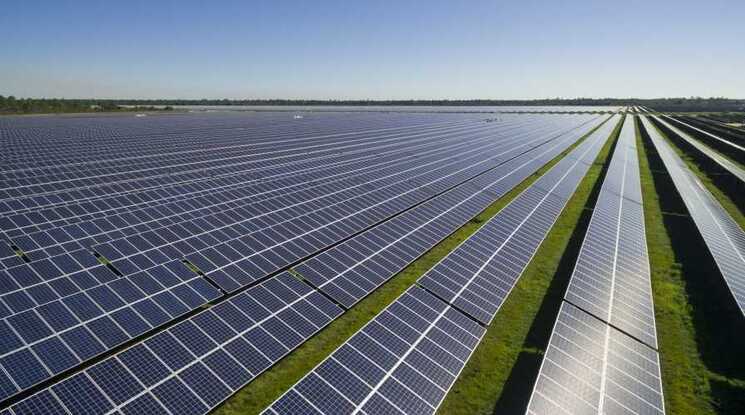In the heart of the agricultural landscape, a transformation is taking place, one that promises to revolutionize the way farmers cultivate their lands and reap their harvests. As the world increasingly turns towards sustainable solutions, Solar Virginia Companies are stepping up to the plate, offering farmers a powerful tool to enhance their operations, reduce costs, and contribute to a greener planet. In this blog, we’ll delve into the myriad ways solar companies are collaborating with farmers, shedding light on the incredible benefits they bring to the fields.
Reducing energy costs in Virginia
Farmers are no strangers to the unpredictability of operating costs, with energy bills often forming a significant chunk of their expenses. Solar companies are changing the game by installing solar panels on farmland, harnessing the sun’s energy to power irrigation systems, barns, and equipment. This shift to renewable energy sources leads to substantial savings on electricity bills, allowing farmers to reinvest their hard-earned money into vital aspects of their operations.
Increased Self-Sufficiency
The sun, a constant presence in rural landscapes, is now more than just a life-giving force for crops. Solar panels transform farmers into energy producers, enabling them to generate their electricity. This newfound self-sufficiency is invaluable, especially in remote areas where access to the grid might be limited. By harnessing the abundant sunlight, farmers become less dependent on external energy sources, empowering them to maintain operations even during power outages or fluctuations.
Boosting crop yields
Solar companies don’t just stop at providing electricity; they offer advanced solutions that directly impact crop yields. With solar-powered irrigation systems, farmers can control water distribution more efficiently, ensuring crops receive the right amount of moisture. This precision can lead to increased yields and improved quality of produce, ultimately translating into better profits for farmers.
Sustainable practices
The agricultural sector has been under increasing scrutiny for its environmental impact. Solar companies collaborate with farmers to promote sustainable practices that align with modern consumers’ growing eco-consciousness. Solar energy adoption significantly reduces carbon footprints by replacing fossil fuels with a clean and renewable source. As a result, farmers can proudly market their produce as environmentally friendly, attracting environmentally-conscious consumers.
Diversification of income
Solar panels in Virginia on farmland serve a dual purpose: not only do they generate energy, but they also diversify farmers’ income streams. Through net metering, excess electricity can be fed back into the grid, generating revenue for farmers. This additional income can be a game-changer, especially during lean agricultural seasons, providing a steady inflow of funds to support the farm.
Tax incentives and grants
Governments and environmental agencies often offer tax incentives and grants to encourage the adoption of renewable energy sources. Solar companies guide farmers through the maze of paperwork and procedures, ensuring they capitalize on these opportunities. These financial incentives can significantly offset the initial investment, making solar energy an economically viable option for farmers.
Long-term investment
Investing in solar energy is not just a short-term fix; it’s a long-term investment with lasting benefits. Solar panels have a lifespan of 25 years or more, ensuring a consistent and reliable source of energy for years to come. The initial investment is recouped through energy savings, and thereafter, farmers enjoy virtually free energy once the system pays for itself.
Strengthening rural communities
The collaboration between solar companies and farmers extends beyond individual benefits. It contributes to the larger narrative of sustainable development and community empowerment. Solar farms can create job opportunities within the local community, from installation and maintenance to administrative roles. This infusion of economic activity invigorates rural areas, fostering a sense of collective growth and progress.
Technological advancements
Solar companies bring cutting-edge technology to the fields, helping farmers stay ahead in a rapidly evolving agricultural landscape. From smart irrigation systems that monitor soil moisture levels to remote monitoring of energy production, these innovations enable farmers to make informed decisions and optimize their operations for maximum efficiency.
Leaving a Legacy
By embracing solar energy, farmers aren’t just reaping immediate benefits – they’re also leaving a positive legacy for future generations. The shift towards renewable energy sources reduces the strain on non-renewable resources and sets an example for sustainable practices. As stewards of the land, farmers play a crucial role in shaping a greener, more harmonious world.
In conclusion, the synergy between solar companies and farmers marks a transformative chapter in agriculture. Beyond the pragmatic advantages of reduced costs and increased yields, this collaboration represents a beacon of hope for a more sustainable future. As solar panels rise over fields that have been tilled for generations, they signify a powerful partnership between nature’s oldest practices and its newest technologies a partnership that holds the promise of a brighter, more prosperous world for all.




